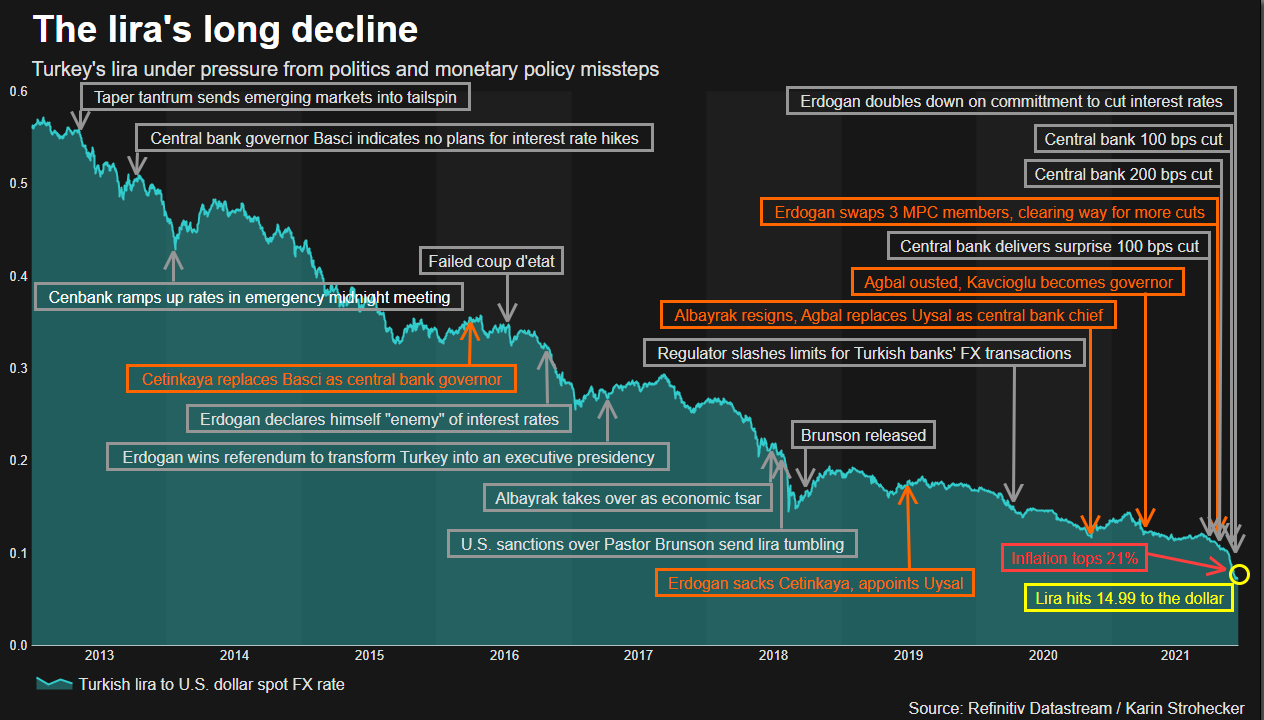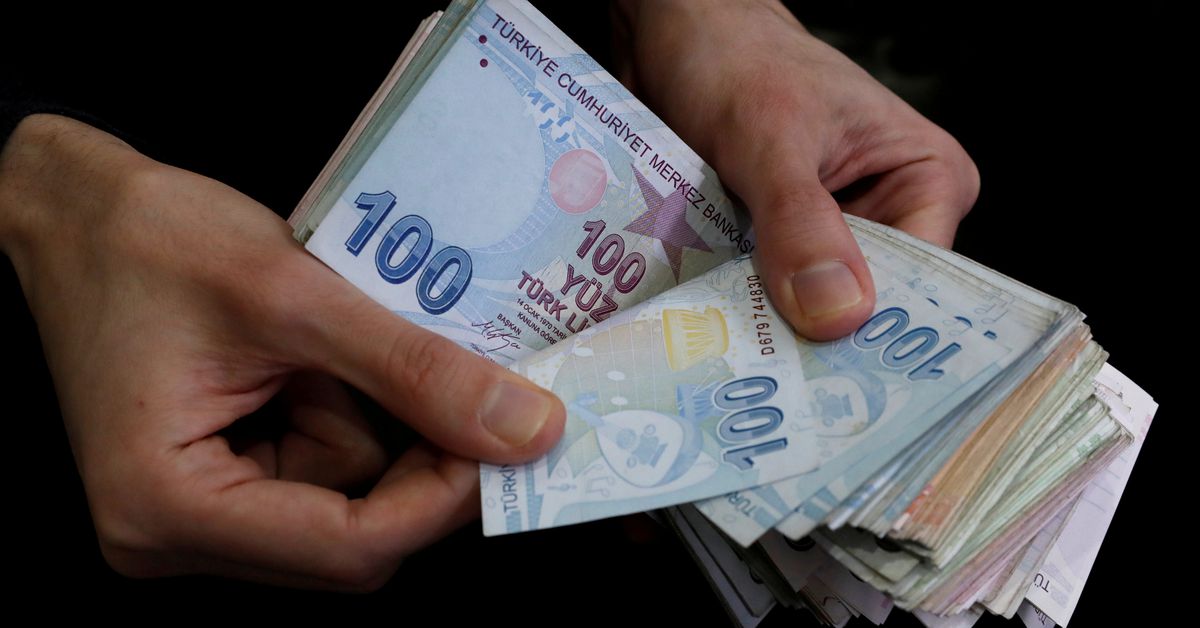A merchant counts Turkish lira banknotes at the Grand Bazaar in Istanbul, Turkey, March 29, 2019. REUTERS/Murad Sezer/File Photo
Register now for FREE unlimited access to reuters.com
Register
ISTANBUL, Dec 13 (Reuters) – Turkey’s lira crashed as much as 7% to a record near 15 to the dollar on Monday before whip-sawing back after the central bank intervened, gripped by worries over President Tayyip Erdogan’s risky new economic policy and prospects of another rate cut.
The central bank said it entered the market to sell dollars for the fourth time in two weeks, triggering the rebound after the currency had touched 14.99 – where it was worth just half its value at the beginning of the year. read more
The bank moved to keep the lira below 14 last week but abandoned that level on Monday. Depreciation fuels inflation in the big emerging market economy that depends heavily on imports, and which is rattled after 400 basis points of interest-rate cuts since September. read more
Register now for FREE unlimited access to reuters.com
Register
The interventions are an additional risk for a central bank that is not only easing policy in the face of rising inflation, but that also has had depleted foreign reserves.
According to calculations of bankers analysing official data, the central bank sold $1.5-2 billion in dollars on Monday alone, after sales worth $2.5 billion in the first three efforts.
By 1547 GMT, the lira had trimmed losses in thin market trading to 13.79 – its strongest point on the day, but still down 31% since the beginning of last month.
“The central bank has continued to intervene to soften the blow but this is akin to putting a band-aid on a gaping wound,” said Win Thin, global head of currency strategy at Brown Brothers Harriman.

In response to the market turmoil – which has upended Turks’ economic lives – Erdogan held talks with Central Bank Governor Sahap Kavcioglu, Finance Minister Nureddin Nebati and the heads of state banks in Istanbul, sources told Reuters. read more
Any decisions from the meeting were not clear and no announcements had been made.
OUTLOOK REVISED TO NEGATIVE
The central bank, under pressure from Erdogan, is expected to cut its policy rate by 100 basis points to 14% this week, a Reuters poll showed on Friday, despite inflation soaring to 21.3% last month. read more
Kavcioglu has said boosting the current account, which showed a surplus of $3.156 billion in October, was key to price and lira stability. But many analysts are sceptical. read more
“We doubt that either intervention or a balanced current account will be effective in stabilising the currency,” Morgan Stanley said in a note.
The central bank’s relatively thin reserves means interventions could be counter-productive, it added.
Data last week showed the central bank’s net international reserves dipping to $22.47 billion. Reserves are sharply negative once outstanding swap transactions of $45.571 billion are deducted. read more
Turkey’s sovereign dollar bonds dropped, with the 2034 issue down 0.8 cents, according to Tradeweb data.
The lira crash has sharply eroded Turks’ earnings, fuelling poverty and leading to lines of people waiting to buy cheap bread as the price of goods surges. Lawmakers have brawled amid rising tensions in parliament as the opposition slammed government handling of the economy. read more
Late on Friday, ratings agency S&P affirmed Turkey’s long-term foreign currency rating at “B+” and revised its outlook to negative on uncertain policy and rising external risks.
Turkey’s 5-year credit default swaps (CDS) nudged 1 basis point higher to a one-week high of 503 basis points, according to IHS Markit data.
Erdogan has repeatedly advocated for rate cuts as he promotes a new economic plan prioritising economic growth, credit, production and exports, despite widespread criticism of the policy from economists and opposition politicians.
“There is an element of concern about what the economic plan is, and how closely aligned it would be to engaging with the private sector. There is a lack of clarity around that,” said Khush Choksy, the U.S. Chamber’s senior vice president for international development and for the Middle East and Turkey.
“U.S. companies do have questions about how Turkey will handle the current short-term crisis and get on to the path of long-term growth that it enjoyed for a long period,” told Reuters.
Register now for FREE unlimited access to reuters.com
Register
Additional reporting by Nevzat Devranoglu, Karin Strohecker and Marc Jones; Writing by Daren Butler;
Editing by Kirsten Donovan and Alison Williams
Our Standards: The Thomson Reuters Trust Principles.
